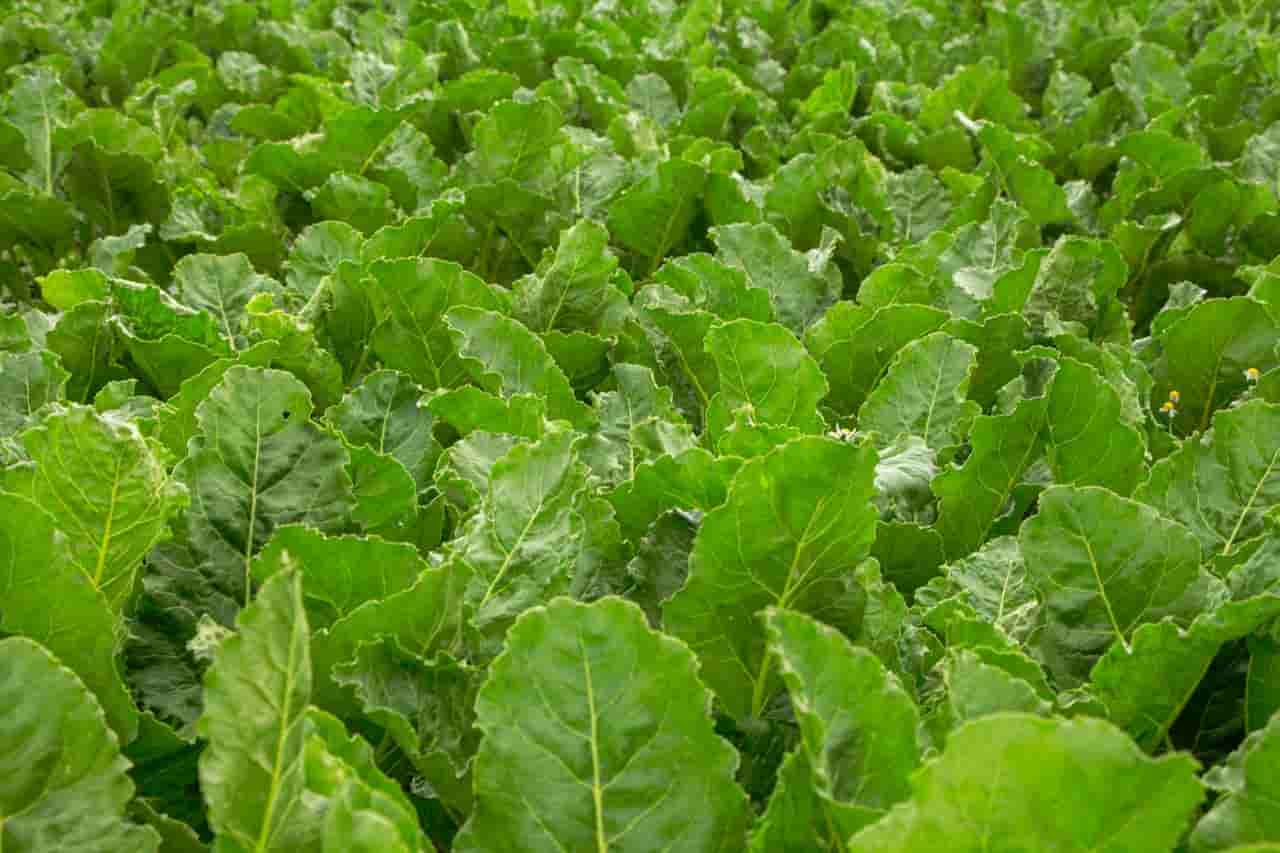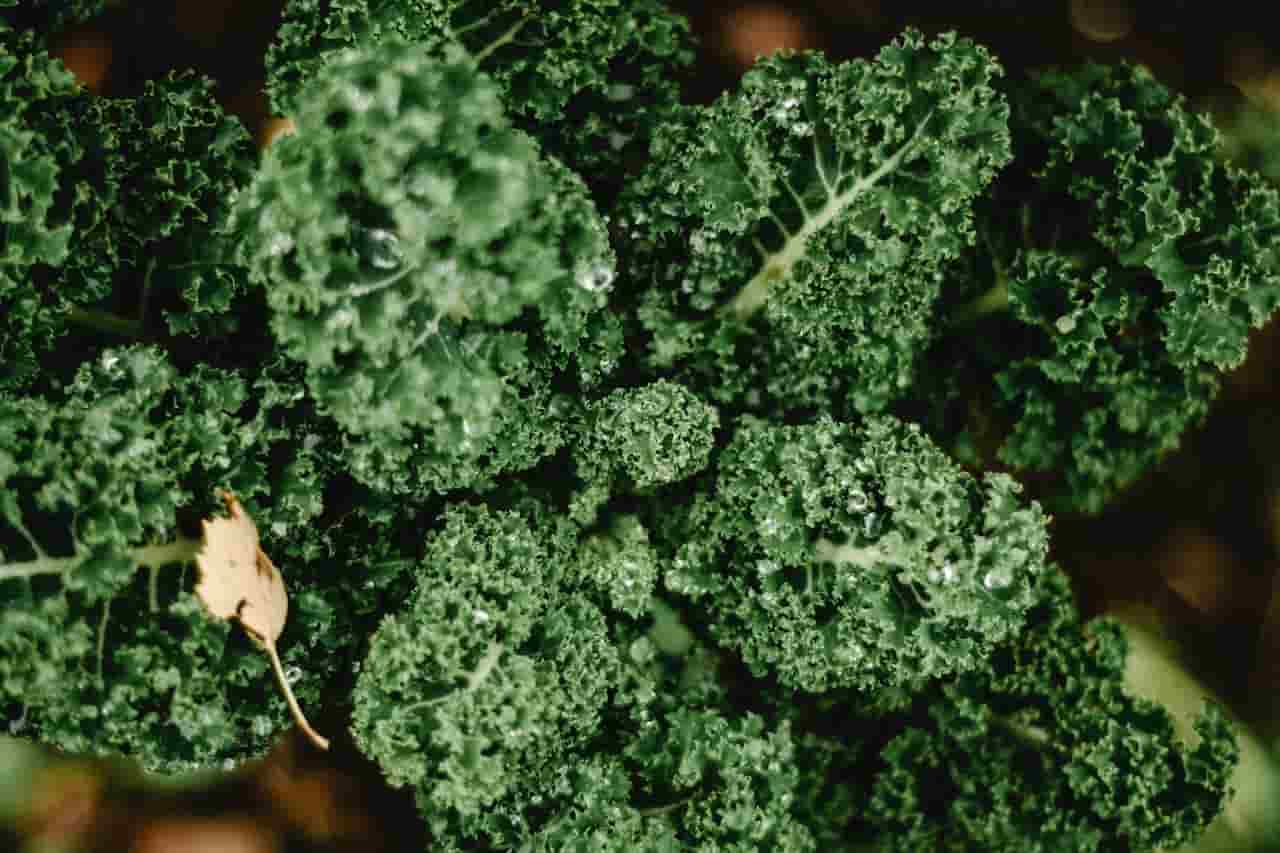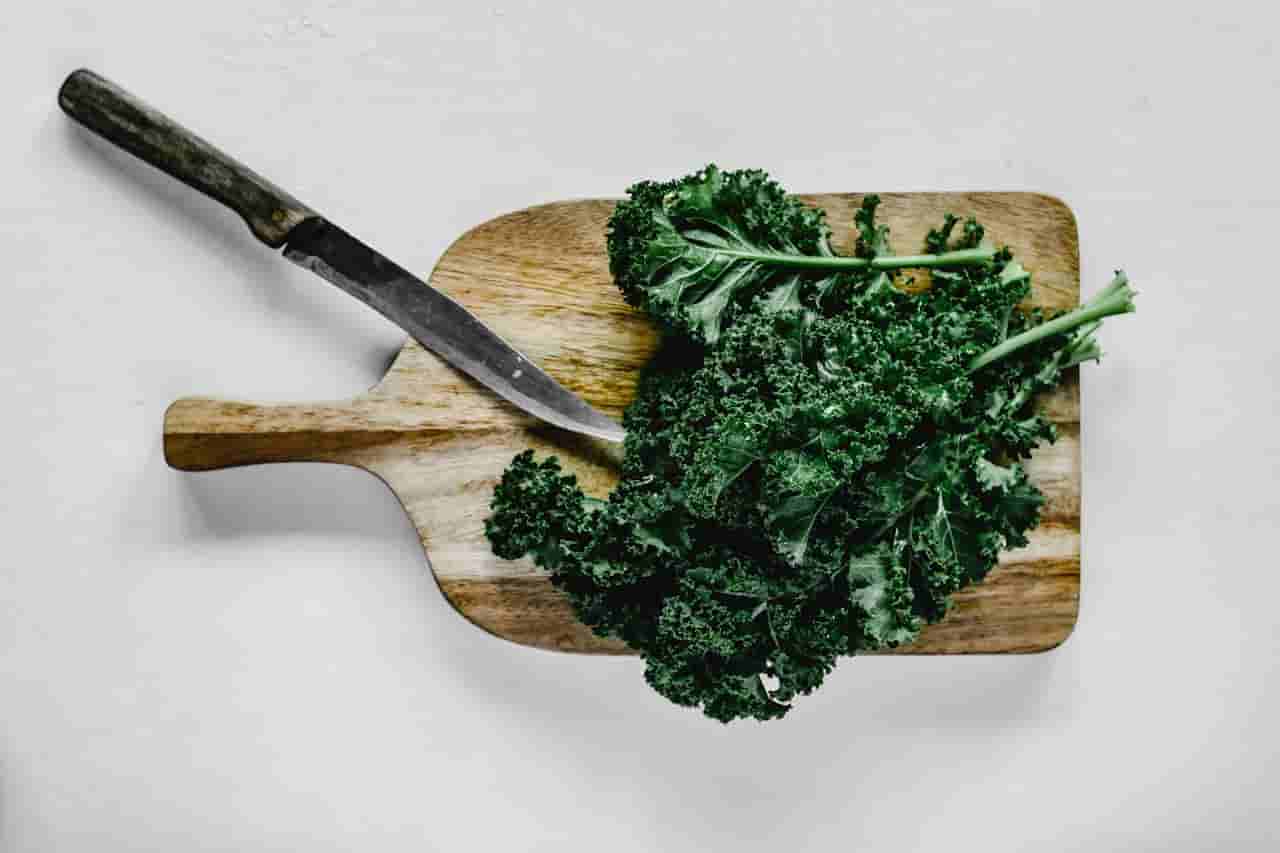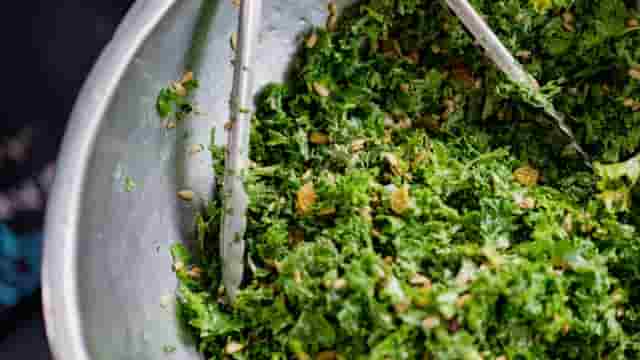ORGANIC VEGETABLES
ORGANIC COLLARD GREENS
Also known as non-heading cabbage or tree cabbage, collards are vegetable greens that are high in minerals and vitamins A and C. Want to incorporate a tasty and nutrient-dense green veggie into your diet? Organic collard greens are one of the best options! In addition to having a wealth of vitamins and minerals, organic collard greens are also quite adaptable in the kitchen. You may savor the flavor of collard greens in a variety of dishes, including stir-fries, stews, salads, and smoothies.
However, what distinguishes organic collard greens? Above all, the fact that they are organic guarantees that the vegetable you are eating is devoid of toxic chemicals and pesticides. As a result, you may take advantage of this leafy green’s health benefits without fretting about what you’re putting into your body. In addition, organic collard greens have a remarkable nutritional profile. They are a great source of calcium, fiber, and vitamins A, C, and K. Collard greens can help maintain strong bones, a healthy immune system, and a healthy digestive system.

Organic Collard Greens vs. conventionally Grown Collard Greens
When talking about organic collard greens, one common question is what makes the types cultivated conventionally and organically different. The primary differences are seen in the farming methods employed and their possible effects on the environment and human health.
Organic collard greens are produced without the use of genetically modified organisms (GMOs) or chemical pesticides or herbicides. Rather than using synthetic pesticides, organic farmers use organic practices that improve soil health. Choosing organic collard greens allows you to take advantage of the nutritional advantages of the vegetable without running the danger of pesticide exposure.
In contrast, conventionally farmed collard greens could be sprayed with artificial fertilizers and pesticides. Even though these chemicals aid in pest management and increase agricultural yields, they can be harmful to human health and the environment. By opting for organic collard greens, you are not only putting your health first but also supporting sustainable farming methods.
Health Benefits of Organic Collard Greens
Collard greens are a nutrient-dense powerhouse with numerous health advantages. Let’s look at a few of the main advantages of eating organic collard greens.
- Rich in Minerals and Vitamins: Organic collard greens are a great source of vitamins A, C, and K. Whereas vitamin C is a potent antioxidant that promotes collagen synthesis and strengthens the immune system, vitamin A is necessary for the immune system and eye health. Vitamin K plays an important role in bone health and blood clotting.
- Rich in Fiber: collard greens are high in fiber, which helps in digestion as well as in regulating blood sugar levels. Consuming a diet rich in fiber can also help control weight and lower the chance of developing long-term conditions like diabetes and heart disease.
- Promotes Bone Health: Collard greens are a great way to get calcium, which is necessary for healthy bones and teeth. Eating foods high in calcium, such as collard greens, can help keep bones healthy and avoid osteoporosis.
- Promotes Heart Health: Collard greens’ high fiber content can help lower cholesterol and lower the risk of heart disease. Furthermore, collard greens’ potassium content supports heart health by assisting in blood pressure regulation.
- Boosts Immune Function: Packed with immune-boosting vitamins and antioxidants, organic collard greens aid in the prevention of infections and the enhancement of immune function in general. You may fortify your body’s defenses by including collard greens in your diet.
Nutritional Profile of Organic Collard Greens
Organic collard greens are not just delicious but are also highly nutrient-dense. Let’s examine the nutritional makeup of collard greens in more detail:
- Vitamins: Vitamins A, C, and K are abundant in collard greens. Vitamin K is essential for blood clotting as well as bone health; vitamin C is a potent antioxidant that guards against cell damage; and vitamin A promotes healthy vision as well as immune system function.
- Minerals: Collard greens are a great source of calcium, iron, and magnesium, among other important elements. Iron aids in the body’s oxygen transport; calcium is vital in bone health; and magnesium is involved in different biochemical functions, as well as helping to maintain normal muscle and nerve function.
- Phytonutrients: Collard greens are rich in phytonutrients including glucosinolates, which have been associated with cancer prevention, as well as lutein and zeaxanthin, which are good for eye health.
- Fiber: Collard greens are rich in dietary fiber, which facilitates better digestion, increases feelings of fullness, and helps control blood sugar levels.
With their outstanding nutritional profile, organic collard greens offer a number of health benefits and are an excellent complement to any diet.
How to Select and Store Organic Collard Greens
There are a few important considerations to make while choosing and storing organic collard greens. To assist you in choosing wisely, consider the following recommendations:
- Look for Freshness: opt for collard greens that are crisp, dark green, and devoid of yellowing or wilting. Steer clear of any leaves that exhibit rotting or brown patches.
- Choose Organic: If possible, go for organic collard greens to make sure you’re eating a vegetable devoid of toxic chemicals and pesticides. Organic farming methods place a stronger priority on environmental sustainability and healthier soil; this results in higher-quality produce.
- Look for firm Stems: Collard greens should have firm stems that haven’t wilted. Avoid bunches that have slimy or squishy stems.
- Store Properly: Your organic collard greens will keep longer if you wrap them loosely in a moist paper towel and store them in a plastic bag. They can be kept fresh for up to a week in the crisper drawer of your refrigerator.
By adhering to these simple steps, you can make sure that you are choosing and storing the best organic collard greens for your meals.

Cooking Methods for Organic Collard Greens
There are many different methods to prepare organic collard greens, making them extremely versatile in the kitchen. Try these well-liked culinary techniques:
- Steamed: Cook collard greens until they are soft by placing them in a steamer basket over boiling water. This cooking method helps retain the nutrients and vibrant green color of the greens.
- Sautéed: Heat a tablespoon of olive oil in a pan, add chopped collard greens, and sauté until wilted. Season with salt, pepper, and a squeeze of lemon juice for added flavor.
- Stir-Fried: Heat a wok or skillet with a small amount of sesame oil, then add your preferred vegetables and collard greens. Stir-fry until the greens are cooked. To add even more flavor, you can add soy sauce or other seasonings.
- Raw in Salads: You can eat collard greens uncooked in salads. Take off the rough stems, slice the leaves, and combine them with your preferred salad toppings, including avocado, tomatoes, and cucumbers. Toss with a mild vinaigrette to create a cool, wholesome salad.
These are just a handful of the numerous ways you can use organic collard greens in your kitchen. To discover your favorite preparation method, get creative and try out various flavors and cooking methods.
Delicious Recipes Using Organic Collard Greens
After learning how to choose, store, and prepare organic collard greens, let’s look at some delectable recipes that highlight the flavor and variety of this healthful vegetable:
- Collard Green Wraps: use collard greens as a nutritious substitute for tortilla wraps. Stuff them with your preferred protein – grilled chicken or tofu, for example – along with a flavorful sauce and some fresh veggies. Take pleasure in a filling and healthy supper after rolling them up.
- Collard Green Smoothie: For an added nutritional boost, try adding a handful of collard greens to your go-to smoothie mix. combine them with fruits like berries and bananas, a liquid base like almond milk, and a scoop of protein powder for a filling and delicious smoothie.
- Collard Green Stir-Fry: Stir-fry collard greens with garlic, ginger, and your choice of protein such as shrimp or tofu. For a vibrant and tasty supper, add more vegetables like broccoli, carrots, and bell peppers.
- Collard Green Salad: Toss chopped collard greens with cucumber slices, cherry tomatoes, feta cheese, and a light vinaigrette dressing to make a light and delicious salad. For an extra crunch, sprinkle some roasted nuts or seeds on top.
You can make countless variations of these recipes to use as a basis for preparing meals that include organic collard greens. Savor the tasty and nourishing advantages of this adaptable vegetable by following your palate.

Where to Buy Organic Collard Greens
You can find organic collard greens in a variety of places depending on your preferences and location. The following are a few options to think about:
- Local Farmers’ Markets: Get fresh, organic collard greens straight from the growers by going to your neighborhood farmers’ market. You’ll have the chance to learn more about the individuals who grow your food and ask questions about their farming methods, in addition to assisting local farmers.
- Community Supported Agriculture (CSA) Programs: By signing up for a CSA program, you can get regular deliveries of fresh vegetables from nearby farms, including organic collard greens. A subscription-based concept, wherein you receive a weekly or bi-weekly box of seasonal produce, is typically available through CSA programs.
- Health Food Stores: Organic collard greens are available at a lot of health food stores and specialty grocery stores. Find out whether the stores in your area stock organic vegetables and inquire about their procurement methods.
- Online Organic Food Delivery Services: A number of online platforms are dedicated to providing organic produce right to your door. These services make sure you get fresh, high-quality collard greens by sourcing from nearby or regional organic farms.
When buying organic collard greens, it is vital to choose suppliers who prioritize organic farming methods and sustainability. By doing this, you can promote environmentally conscious agriculture and take advantage of the many health benefits of organic collard greens.
Frequently Asked Questions About Organic Collard Greens
- Do I need to wash organic collard greens before consuming them? Yes, you must properly wash organic collard greens before using them. Make sure to rinse them under cold water to get rid of any dirt or debris. Use a salad spinner or pat dry the vegetables before cooking or consuming them raw.
- Are organic collard greens more expensive than conventionally grown ones? Even though organic produce may cost a little more, for many people the advantages to their health and the environment outweigh the price difference. Furthermore, more economical solutions are usually available if you purchase organic collard greens from nearby farmers’ markets or sign up for a CSA.
- Can I freeze organic collard greens? organic collard greens can be frozen for later use. Blanch them in boiling water for some minutes, then transfer them to an ice bath to stop the cooking process. After they’ve cooled, drain them and store them in freezer bags or airtight containers. Collard greens that have been frozen can be kept for up to a year.
- Can I use frozen collard greens instead of fresh ones? Yes, when fresh collard greens aren’t available, freezing them might be a useful solution. They work well in a variety of recipes, including stir-fries, stews, and soups. But be aware that it could have a little different texture than fresh collard greens.
- Are collard greens suitable for individuals with dietary restrictions or allergies? Most people believe that collard greens are safe to eat. To be sure collard greens are appropriate for your unique needs, it’s advisable to speak with a medical expert or registered dietitian if you have any dietary restrictions or allergies.

Final Thoughts
Let’s sum up by saying that organic collard greens are a wholesome and adaptable vegetable that goes well with a lot of different dishes. Because of their organic status, you may enjoy the health advantages of vegetables without fretting about what you are putting into your body because you know that you are eating food devoid of toxic chemicals and pesticides. Collard greens are a great complement to a balanced diet because they are high in vitamins, minerals, as well as fiber.
There are countless ways to prepare collard greens – you may sauté, steam, stir-fry, or even eat them raw in salads. Try a variety of cooking techniques and flavor combinations to determine how you like to consume this nutrient-dense vegetable.
Choose freshness when buying organic collard greens, and think about supporting local farmers or signing up for a CSA. Opting for organic food not only puts your health first but also helps create a more sustainable food system.
Therefore, why not attempt some organic collard greens? Try including them in your meals to enjoy their many health advantages and amazing flavors. Your body and palate will appreciate it!
COLLARD GREEN IMAGES

